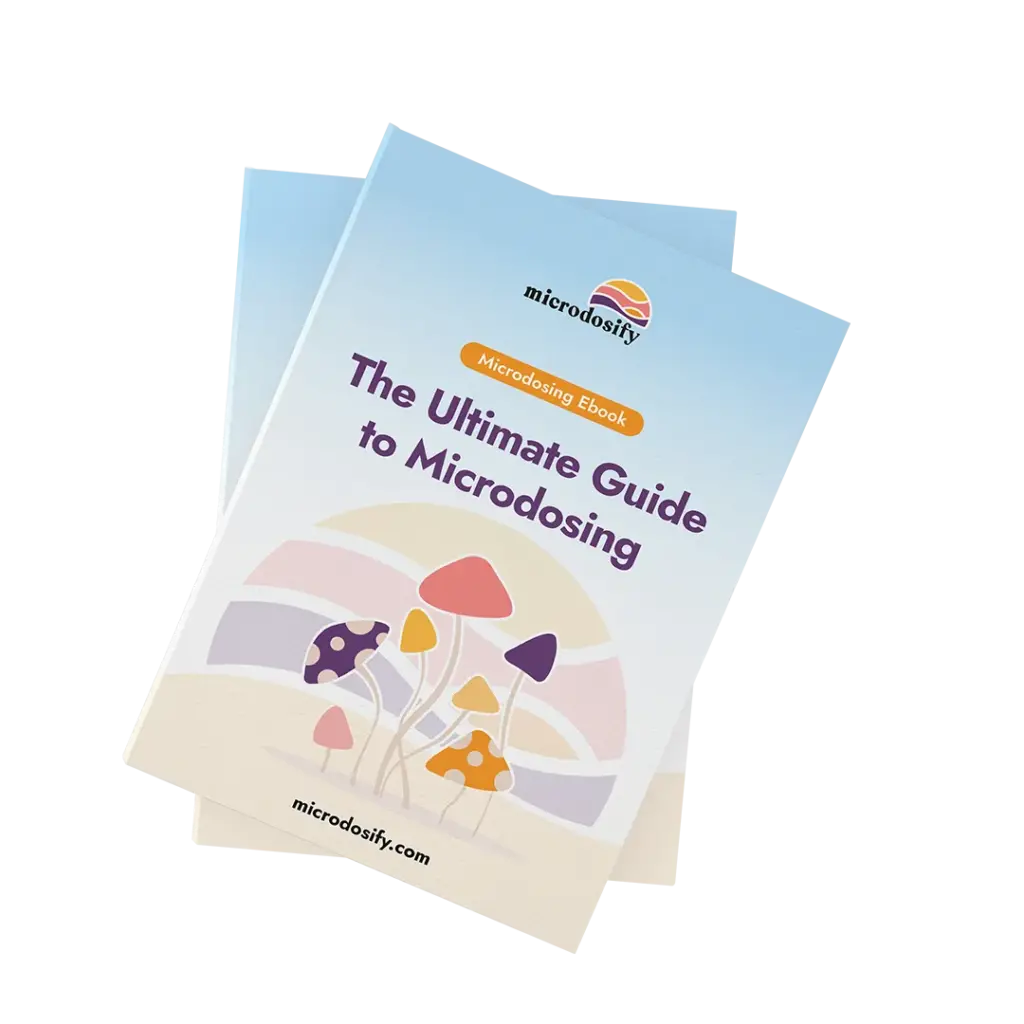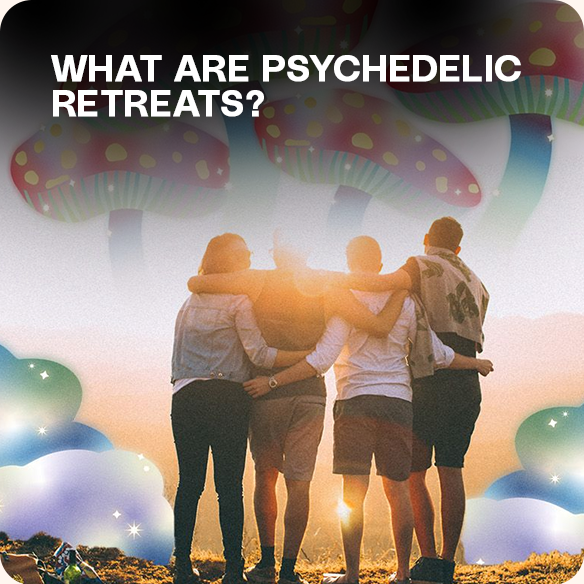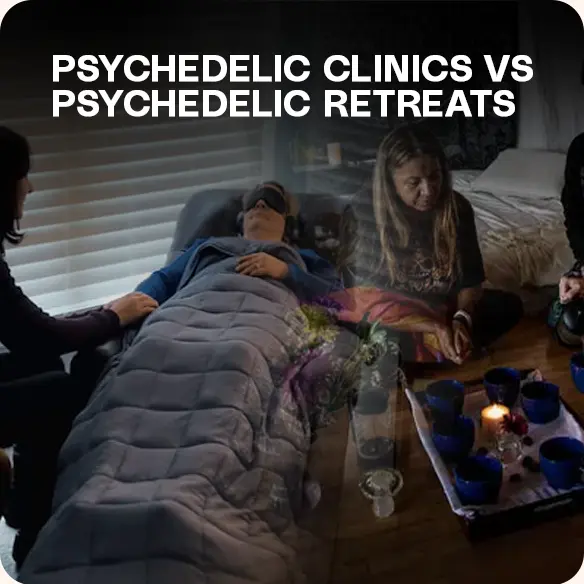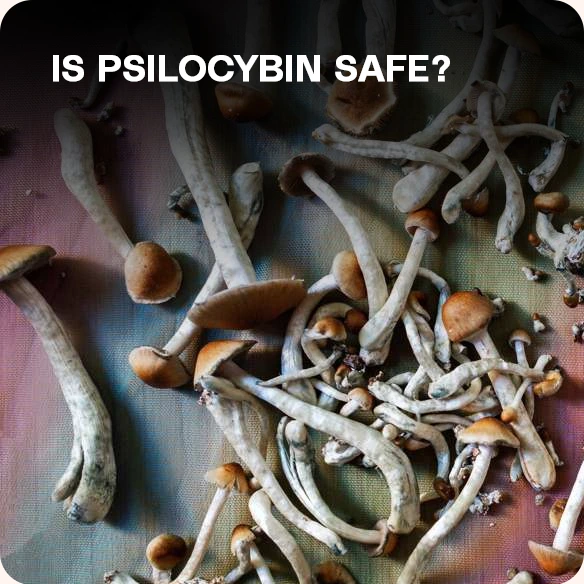Psychedelic retreats are structured programs offering supervised psilocybin, ayahuasca, or other psychedelic experiences in legal jurisdictions.
These multi-day programs combine preparation sessions, guided ceremonies, and integration support in controlled environments.
Costs range from $2,000-8,000 for 3-7 day programs, with trained facilitators providing medical screening, psychological support, and post-experience counseling.
Legal psychedelic retreats operate primarily in countries where specific substances remain legal or decriminalized, including Jamaica (psilocybin), Netherlands (psilocybin truffles), Costa Rica (ayahuasca), Peru (ayahuasca), and Portugal (decriminalized).
Oregon and Colorado became the first US states offering legal psilocybin services in 2023-2024, creating domestic retreat options.
Key Points
- Legal Locations: Jamaica, Netherlands, Peru, Costa Rica, Oregon, Colorado for psilocybin; Brazil, Peru, Ecuador for ayahuasca
- Program Length: Typically 3-7 days including preparation, ceremonies, and integration sessions
- Cost Range: $2,000-8,000 depending on location, accommodation quality, and program comprehensiveness
- Medical Screening: Required assessments for heart conditions, psychiatric history, medication interactions
- Facilitator Training: Professional retreats employ licensed therapists, physicians, or extensively trained guides
- Group vs Private: Group retreats (8-15 participants) cost less than private sessions
- Integration Critical: Post-retreat support significantly impacts long-term benefit realization
Where Are Legal Psychedelic Retreats Located?
Jamaica leads international psilocybin retreat destinations because mushrooms remain fully legal.
Multiple retreat centers operate in Montego Bay, Negril, and Portland Parish, offering ocean-view settings with professional facilitation. Prices range $3,000-6,000 for 5-7 day programs including accommodation, meals, and multiple ceremonies.
The Netherlands allows psilocybin-containing truffles (sclerotia) legally, creating a retreat industry in Amsterdam and surrounding areas. Programs cost $1,500-4,000 for 2-4 day experiences. Dutch retreats emphasize harm reduction, medical safety, and therapeutic integration within European regulatory frameworks.
| Location | Legal Substance | Typical Cost | Program Length |
|---|---|---|---|
| Jamaica | Psilocybin mushrooms | $3,000-6,000 | 5-7 days |
| Netherlands | Psilocybin truffles | $1,500-4,000 | 2-4 days |
| Oregon, USA | Psilocybin mushrooms | $2,500-5,000 | Varies |
| Peru | Ayahuasca | $1,500-3,500 | 7-14 days |
| Costa Rica | Psilocybin/Ayahuasca | $2,500-5,500 | 5-10 days |
United States Retreat Options
Oregon’s Psilocybin Services program began operating in 2023, creating the first legal US psilocybin retreats. Licensed service centers offer preparation sessions, supervised psilocybin administration, and integration support. Costs range $2,500-5,000 for complete programs.
Colorado’s Natural Medicine program launched in 2024, permitting psilocybin and other plant medicines in licensed healing centers. Programs mirror Oregon’s model with mandatory preparation, supervision, and integration components.
Ketamine retreats operate legally throughout the United States under medical supervision, typically costing $3,000-7,000 for multi-day programs combining ketamine-assisted therapy with integration work.
What Happens During a Psychedelic Retreat?
Comprehensive retreats include three phases: preparation (1-2 days), ceremony (1-3 sessions), and integration (1-2 days). This structure maximizes safety and therapeutic benefit compared to unsupervised experiences.
Preparation Phase
Preparation begins with medical screening for contraindications including heart conditions, psychiatric disorders, and medication interactions. Participants complete psychological assessments, set intentions, and learn about substance effects and potential challenges.
Group preparation sessions build community trust and establish safety protocols. Facilitators review what to expect during ceremonies, breathing techniques for anxiety management, and when to request support. Diet restrictions (avoiding tyramine-rich foods before ayahuasca) begin 48-72 hours pre-ceremony.
Ceremony Experience
Ceremonies typically last 4-8 hours for psilocybin, 4-6 hours for ayahuasca. Participants rest in comfortable spaces with eye masks, headphones with curated music, and blankets. Facilitators remain present throughout, monitoring physical and psychological states.
Multiple facilitators attend group ceremonies, maintaining 1 guide per 3-4 participants. Medical personnel remain on-site or on-call for emergencies. Participants can request support, move to private spaces, or receive grounding assistance as needed.
Integration Phase
Post-ceremony integration begins immediately with group sharing circles where participants discuss experiences. Individual counseling sessions help process insights and identify actionable changes for daily life.
Professional retreats provide 4-12 weeks of post-retreat integration support through video calls, online groups, or email check-ins. This ongoing contact helps solidify behavioral changes and address delayed processing of difficult material.
How to Choose a Psychedelic Retreat
Selecting safe, effective retreats requires researching facilitator qualifications, medical protocols, and participant reviews.
Underground or unlicensed operations carry significant legal and safety risks compared to established programs in legal jurisdictions.
Essential Safety Criteria
Verify facilitators hold relevant credentials: licensed therapists, physicians, traditional healers with documented lineage, or completion of recognized training programs (CIIS, Fluence, IPI). Ask about years of experience and number of ceremonies facilitated.
Medical screening protocols should include cardiovascular assessment, psychiatric history review, medication interaction checks, and pregnancy testing. Retreats should refuse participants with contraindications rather than accepting everyone for profit.
Emergency preparedness matters critically. Confirm on-site or nearby medical personnel, hospital proximity (within 30 minutes), and clear protocols for psychiatric emergencies. Review insurance coverage and liability protections.
Red Flags to Avoid
Warning signs include no medical screening, vague facilitator credentials, pressure to book immediately, promises of guaranteed outcomes, or dismissal of risks and contraindications. Legitimate retreats emphasize informed consent and safety over marketing claims.
Avoid facilitators who initiate romantic or sexual contact, discourage outside medical care, or create cult-like dependency. Ethical programs encourage participant autonomy and connection to existing support systems.
What Are the Best Psychedelic Retreats?
Top-rated retreats combine experienced facilitators, comprehensive programming, and strong safety protocols. Reviews, referrals from therapists, and transparent operations indicate quality programs.
Highly Regarded International Programs
MycoMeditations (Jamaica) specializes in psilocybin therapy retreats with licensed therapists and physicians. Programs cost $4,500-5,500 for 7 days, including multiple ceremonies, group therapy, and oceanfront accommodation. Medical screening requirements are rigorous.
Synthesis (Netherlands) offers psilocybin truffle retreats near Amsterdam with trained facilitators and psychological support. 3-day programs cost approximately $2,500-3,500. They emphasize harm reduction and evidence-based practices.
Temple of the Way of Light (Peru) provides traditional ayahuasca ceremonies with Shipibo healers and Western integration support. 9-12 day retreats cost $2,000-3,000. They maintain traditional practices while adding contemporary safety protocols.
US-Based Options
Oregon service centers like EPIC Healing Eugene offer psilocybin services under state licensing. Programs include multiple preparation sessions, supervised dosing, and integration support for $3,000-4,000.
Ketamine retreats like Field Trip Health and Anywhere Clinic operate nationwide, combining ketamine therapy with psychotherapy and integration. Programs cost $3,500-6,500 for multi-day experiences.
What About Luxury Psychedelic Retreats?
Luxury retreats offer higher-end accommodations, private ceremonies, and extended integration support for $8,000-15,000. These programs provide individual attention, gourmet meals, spa services, and sometimes adventure activities alongside therapeutic work.
Private ceremonies allow couples or individuals to experience psychedelics without group dynamics. Costs increase significantly ($5,000-10,000 per person) but offer personalized attention and flexible scheduling.
Luxury doesn’t guarantee better therapeutic outcomes. Facilitator skill, preparation quality, and integration support matter more than accommodation amenities. Some people benefit from group experiences despite preferring luxury settings.
How Much Do Psychedelic Retreats Cost?
Budget retreats start around $1,500-2,000 for basic accommodation and ceremony access. Mid-range programs ($3,000-5,000) include better facilities, more experienced facilitators, and comprehensive integration. Luxury options exceed $8,000 with resort-quality amenities.
Cost Breakdown Components
Accommodation represents 20-30% of costs, ranging from shared rooms to private villas. Facilitator fees constitute 30-40%, covering preparation, ceremonies, and integration support. Meals, transportation, and administrative costs comprise the remaining 30-40%.
Additional expenses include flights (Jamaica $400-800, Peru $600-1,200 from US), travel insurance, pre-retreat medical clearance ($100-300), and post-retreat therapy ($150-250 per session).
Some programs offer payment plans, sliding scales, or scholarships. Research funding occasionally covers retreat costs for participants in clinical studies. Insurance rarely covers psychedelic retreats except ketamine therapy in some cases.
What Medical Conditions Prevent Retreat Participation?
Heart conditions, uncontrolled hypertension, psychotic disorders, and bipolar disorder represent absolute contraindications for most psychedelic retreats. Family history of schizophrenia requires careful evaluation and often disqualifies participants.
Current SSRI, MAOI, or lithium use creates dangerous interactions with psychedelics. Most retreats require 4-6 week medication washouts under physician supervision before participation. Never discontinue psychiatric medications without medical guidance.
Pregnancy and nursing contraindicate psychedelic use due to unknown fetal/infant effects. Severe liver or kidney disease may prevent ayahuasca participation due to metabolic demands.
Risk Assessment Process
Legitimate retreats require medical questionnaires, physician clearance letters for pre-existing conditions, and sometimes electrocardiograms for participants over 50. They consult medical advisors for borderline cases rather than accepting all applicants.
Honest disclosure protects participant safety. Concealing medical history to gain retreat acceptance creates life-threatening risks. Facilitators cannot properly monitor or respond to emergencies without complete information.
How to Prepare for a Psychedelic Retreat
Preparation begins 2-4 weeks before retreats with dietary changes, medication adjustments, and psychological readiness work. This preparation phase significantly impacts experience quality and integration success.
Physical Preparation
Reduce caffeine, alcohol, and recreational drug use 1-2 weeks before retreats. Some programs require complete abstinence. Ayahuasca retreats mandate avoiding tyramine-rich foods (aged cheeses, cured meats, fermented products) for 48-72 hours pre-ceremony.
Establish regular sleep schedules, as rest impacts psychological resilience during ceremonies. Light exercise (walking, yoga) supports physical readiness without exhausting the body before travel.
Psychological Preparation
Clarify intentions through journaling: What do you hope to explore? What patterns need attention? What questions guide your journey? Specific intentions create framework for experiences without rigidly controlling outcomes.
Address logistics causing stress: work coverage, childcare arrangements, pet care. Mental preoccupation with unresolved responsibilities diminishes presence during ceremonies. Complete necessary tasks before departure.
Review educational materials about substance effects, common experiences, and integration practices. Realistic expectations prevent disappointment while maintaining openness to unexpected insights.
Frequently Asked Questions About Psychedelic Retreats
Are psychedelic retreats legal?
Psychedelic retreats are legal in specific jurisdictions where substances remain decriminalized or explicitly permitted. Jamaica, Netherlands, Peru, Costa Rica, Oregon, and Colorado offer legal options. International travel to retreat locations is legal; bringing substances back to the US is federal crime.
How safe are psychedelic retreats?
Safety depends entirely on retreat quality, medical screening, and facilitator training. Professional programs with licensed staff, proper screening, and emergency protocols show excellent safety records. Underground operations without medical oversight carry significant risks. Research retreats thoroughly before booking.
Do I need retreat experience or can I go as a beginner?
Most retreats welcome first-time participants and provide appropriate preparation and support. First-timers often benefit more from structured retreat environments than attempting solo experiences. Communicate inexperience during screening to receive adequate preparation.
What’s the difference between psychedelic retreats and therapy?
Retreats offer time-limited experiences with integration support, while therapy provides ongoing treatment. Some retreats employ licensed therapists; others use trained facilitators without therapy credentials. Retreats complement rather than replace traditional therapy for most people.
Can I take my psychiatric medications during a retreat?
Most psychiatric medications require discontinuation before psychedelic experiences due to dangerous interactions. SSRIs reduce psychedelic effects while creating serotonin syndrome risk. MAOIs cause life-threatening reactions with ayahuasca. Never discontinue medications without physician supervision. Some retreats accommodate participants on stable non-contraindicated medicationsReferences and Sources





